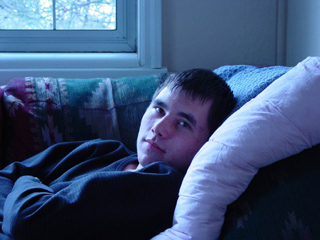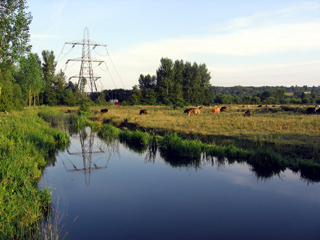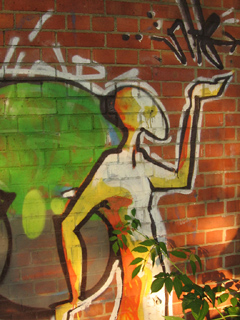Since my camera is still off in Stoke-on-Trent going through dust rehab, I am unable to produce new photos of the day. My stock of recent images has also been exhausted, as a slew of photos of high voltage towers might have indicated. For the next while, I will therefore use much older photos as photos of the day, with some explanation of why they are interesting.
This photo was taken of my by Kate’s friend Lucas, the morning after her seventeenth birthday party, on Mount Stephen Street, in Victoria. Given that the photo is six years old (27% of my whole life), I think I look remarkably similar. Eight months after this photo was taken, I started my undergraduate program at UBC. This is a period I think back to again and again because it strikes me as the point at which almost everything that has happened since became fairly obvious. That is to say, the probable course for the next decade or so was laid out.
With regard to the period after the M.Phil, there is enormously more doubt. Almost everyone has advised against me going straight into a PhD program. After six consecutive years of university education, attaching another four to six right on seems like a tall order. As for what could be done during a lapse, the obvious options are to work (somewhere interesting) and travel. To work for a year and a half or so, then travel for six months, is an idea with considerable appeal.
The travel plan would be a great arc across the Eurasian landmass: from coastal China through southeast asia to India, then up to Turkey, Russia, and through Eastern and Central Europe. Incorporating Africa, and perhaps Australia and New Zealand, would also be a big plus. One of the three planks of my eight year plan is to travel to at least every major area of the world. With only North America and Western Europe firmly under my belt, that leaves a lot of wandering to be done.
Canada trip
On the matter of the return to Canada, it seems quite likely that I will be able to see most of my friends in the area over the course of the nineteen days. On my last Saturday in Canada: the 16th of September, I am planning a gathering at my parents’ house in North Vancouver of a style akin to my departure and graduation parties. People should be sure to mark it on their calendars.




